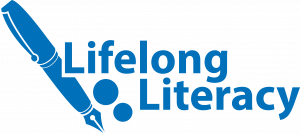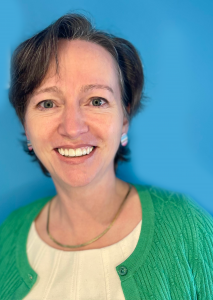
- Instructor: ies

Course Provider: Lifelong Literacy
| 215USD | Flexible | 8 Hours | Self-paced | Certificate available |
Bringing linguistics to teaching. Lyn Stone says, “At my practice, Lifelong Literacy, we have always had enormous fun with lessons about word power, including parts of speech, sentence structure, dictionaries and morphology. The fact that my students have returned week after week makes me think that they have had fun learning it. As usual, tailor-making programs for hundreds of students began to grow into something else. All the facts were distilled and became a useful program. I’ve called it Language For Life.”
Take the mystery out of parts of speech. Get the most from your dictionaries. Teach your students how to break words down into morphemes like bosses! Not only does this course provide scripts and frameworks to help educators get to the nitty gritty of grammar and syntax, but it also empowers students with the why and how of language, so that they can improve their written and oral expression.
Knowing how words work together, why some phrases and clauses sound better than others, how a single word cannot be properly defined without looking at its place in phrases and clauses: all of these important aspects of spoken and written language will be included in the course.
COMPLETION CRITERIA
The most significant completion criterion is your own perception that you’ve got the most out of it. We do ask, though, that you participate in two out of the five forums along the way. Of course, as course admins, we can see whether or not you’ve opened the pdfs and watched the videos too, so we wouldn’t be that enthusiastic about certifying anyone who hasn’t glanced at the material. We just hope that you do much more than glancing.
We’ve tried to give you as much information as possible, including videos, pdfs, worksheets, quizzes and best of all, forums in which you can collaborate with your colleagues and me to get the very best out of the material.
Course content:
Part 1: The parts of speech
Learn how to define and teach each major word category and how each one interacts with others in sentences. Go beyond ‘a noun is a naming word, a verb is a doing word, an adjective is a describing word…’ to uncover the characteristics and behaviour of words in utterances.
We will cover:
■ nouns
■ determiners
■ pronouns
■ verbs
■ adjectives
■ adverbs
■ prepositions
■ conjunctions
Part 2: How to use a dictionary
Are paper dictionaries obsolete? With sophisticated search engines and online dictionaries in our lives, there are certainly grounds for arguments in the affirmative.
My conclusion is twofold:
■ At the time of writing, paper dictionaries were still very much present in classrooms.
■ Both online and paper dictionaries are organised in the same basic way.
Therefore, learning the parts of a dictionary, and how to use reference materials in general, is still a valuable skill. Furthermore, a large majority of the teachers surveyed at my workshops over the past several years admit to not knowing the full extent of the information provided and conventions used by dictionaries. Their feedback is always positive in this regard, and they often report a renewed keenness to help their students get the most out of dictionaries.
In these lessons, students will discover the various sections of a dictionary. They will find examples of these sections and will play games and do activities to familiarise themselves with dictionaries.
Part 3: Morphology in Depth
‘For every word a child learns, we estimate that there are an average of one to three additional related words that should also be understandable to the child, the exact number depending on how well the child is able to utilize context and morphology to induce meanings.’
(Nagy & Anderson, 1984, p. 304)
This entire topic is dedicated to morphology, but without knowing the parts of speech and how to use a dictionary, morphological study is limited.
We will discover prefixes, base words and suffixes here.
Participants will:
■ receive a reusable book of worksheets for direct classroom application
■ receive a downloadable manual
■ be able to participate in live forums with colleagues
■ receive a suggested grammar and morphology scope and sequence from F-6
■ receive a certificate of completion for 8 hours of PD
Learning Outcomes
By the end of the course, participants should:
■ be able to define the six main parts of speech and show how they relate to one another in sentences,
■ know how to teach all the parts of a dictionary to students,
■ have a clear understanding of prefixes, bases and suffixes.
Course Commitment
8 hours to be done asynchronously over a maximum of three months. No extra work to submit.
Schedule
Flexible Schedule / Self-paced

Lifelong Literacy is a high-quality, low-variance literacy consultancy. Our mission is to help bridge gaps in education in the following ways:
■ by building bridges from research to practice with research-informed publications, resources and presentations,
■ by fostering improvement in teacher knowledge, with training and mentoring on a individual, whole school, and school cluster basis,
■ by helping students catch up and excel in learning and academic achievement by providing custom-made, specialized online and face to face tutoring.
Founder

Lyn Stone
Lifelong Literacy’s founder, Lyn Stone, is a Scottish educational linguist and author. She lives and works in Victoria, Australia where she runs her consultancy and tutoring practice.
Lyn creates research-informed professional development seminars and resources for teachers and other education professionals. She is a sought-after public speaker and regularly makes appearances at worldwide conferences and on live radio.
Her goal is to help educators awaken linguistic curiosity in their students using creative, engaging tools and strategies that are based upon scientific consensus as to what constitutes best practice.
Lyn has been trained in numerous major literacy acquisition programs and pedagogical approaches (Lindamood LiPS, Spalding, Read Write Inc., Sounds Write, Explicit Direct Instruction, Auslan and Makaton, to name but a few), and it is due to her breadth and depth of knowledge on what works and doesn’t work in teaching that she is highly qualified to assist schools to make decisions on what to accept, and equally importantly, on what to reject when selecting resources.
Lyn has extensive classroom-teaching experience and is regularly employed by schools on a contractual basis to provide specialist literacy education for groups of at-risk students as well as training for teachers.
Her three bestselling books, Spelling for Life, Language for Life and Reading for Life have attracted international acclaim.

Lyn Stone
Lifelong Literacy’s founder, Lyn Stone, is a Scottish educational linguist and author. She lives and works in Victoria, Australia where she runs her consultancy and tutoring practice.
Lyn creates research-informed professional development seminars and resources for teachers and other education professionals. She is a sought-after public speaker and regularly makes appearances at worldwide conferences and on live radio.
Her goal is to help educators awaken linguistic curiosity in their students using creative, engaging tools and strategies that are based upon scientific consensus as to what constitutes best practice.
Lyn has been trained in numerous major literacy acquisition programs and pedagogical approaches (Lindamood LiPS, Spalding, Read Write Inc., Sounds Write, Explicit Direct Instruction, Auslan and Makaton, to name but a few), and it is due to her breadth and depth of knowledge on what works and doesn’t work in teaching that she is highly qualified to assist schools to make decisions on what to accept, and equally importantly, on what to reject when selecting resources.
Lyn has extensive classroom-teaching experience and is regularly employed by schools on a contractual basis to provide specialist literacy education for groups of at-risk students as well as training for teachers.
Her three bestselling books, Spelling for Life, Language for Life and Reading for Life have attracted international acclaim.
Jane Lobsey, PYP Coordinator and Joe Schaaf, N-12 Curriculum and Continuum Coordinator
International School of Tianjin
“When embarking upon a curriculum review of reading instruction at our school, we discovered Lyn Stone’s book, Reading for Life, which was read by our review team. This text was critical in supporting our understanding of the science of reading, affirming our understanding of the best, most evidence-based practices in reading instruction. As we continued our journey and began to reflect on and modify our practices, we were fortunate enough to connect with Lyn, who was able to answer our questions about everything from phonics programs to morphology and from teacher accents to schwa! Lyn has provided a model of support which has included consultancy with the leadership team, leading professional learning sessions which catered for teachers from Nursery to Grade 12, and observing and providing feedback on explicit phonics lessons with teams of teachers. Some of our staff members have also engaged in her online courses, which were extremely valuable. When teachers were asked what they needed to support reading instruction, one staff member commented, “More Lyn Stone!” Lyn’s friendly and witty demeanor captivates staff during professional learning, however her true value is in her depth of knowledge in all areas of literacy and language.“
